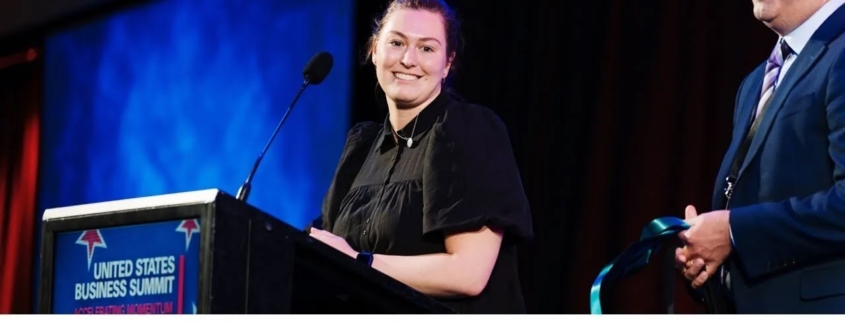Silver Fern Farms’ Rob Hewett wins Chairperson of the year at Deloitte Top 200 awards (NZ Herald)
Silver Fern Farms’ Rob Hewett wins Chairperson of the year at Deloitte Top 200 awards (NZ Herald)
Rob Hewett, a prominent figure in New Zealand’s agribusiness sector, has been honoured as the 2023 Chairperson of the Year at the Deloitte Top 200 awards, celebrating his impressive leadership roles and the business success he has overseen.
Hewett is co-chair of Silver Fern Farms, a leading producer and global marketer of grass-fed red meat, owned in equal partnership by Silver Fern Farms Co-operative (a farmer co-operative that he also chairs) and Shanghai Maling Aquarius.
He is also chair of Farmlands Cooperative, Pioneer Energy, Woolworks, Fern Energy and Haulage.
Hewett has directorships at Pulse Energy and T&G Global.
Additionally, he actively manages a carbon-positive farm and participates in a think-tank for agricultural innovation.
The Deloitte Top 200 judges commend Hewett for blending strong commercial acumen with a deep understanding of agriculture and a profound connection to the land, spanning six generations of his family’s background.
Award judge Ross George says: “Rob has a very clear vision for the businesses he chairs, he communicates that well and maintains solid relationships with his managing directors”.
Describing his style as a chairman, Hewett says he’s collegial, and compares his approach to a traffic director in the boardroom.
“My job is to get the best out of the people around the table, give them opportunities, and shut them down if they start hogging the microphone,” adding that he is also not afraid to make hard decisions where necessary.
The past year was a banner one for Silver Fern Farms and the judges applaud Hewett for playing a significant role in its result, which saw a net profit after tax of $189.3 million, representing an 82 per cent increase.
Hewett says this was an all-time record by a significant margin, and while he points out that part of the result can be attributed to “a rising tide that all boats enjoyed” in the market, he says there is no question a large proportion of it reflected the business’ focus on the end consumer and the co-operative’s commitment to sharing the risk and reward of the operating company’s market performance with farmer suppliers.
A notable success is Silver Fern Farm’s Net Carbon Zero beef, launched in the United States last year. Although sales of this product remain relatively small, it casts a positive light on other areas of the business and demonstrates alignment with the preferences of discerning customers.
“It has great bones and great potential because it is exactly where the market wants us to go,” Hewett says. “Since we launched that product, markets internationally have had some headwinds, but it is still true to say that the attributes that programme has around sustainability and naturalness hold true.”
Silver Fern Farms’ performance has paved the way for its largest-ever investment programme, across a range of projects that will modernise its facilities and embrace digital transformation for long-term sustainability.
As a leader in the agricultural sector, Hewett emphasises the inherent commercial acumen of farmers.
“They are over-indexed in a few areas, but they manage risk on a daily basis without even knowing they are doing it,” he says.
Hewett considers a significant responsibility of his role to be nurturing the next generation of leaders. “We have put a very proactive succession programme in place,” he says.
A governance programme, “To the Core”, initiated by Silver Fern Farms and now adopted by Farmlands and LIC, helps to cultivate a pipeline of emerging talent in the agri-sector.
“That includes reaching into our shareholder constituency and identifying self-starters who have the ability and the time to go on and be governors of the company in the future,” says Hewett.
The Silver Fern Farms Co-operative now has three of its five farmer-elected directors on the board having done the programme, and two of the farmer-elected directors of the partnership board.
“Rob is very commercial, has an international outlook and is familiar with all aspects of global trade,” adds George, chief executive of Direct Capital. “But he is equally at home talking to individual farmers about their issues.”
Reflecting on the partnership with Shanghai Maling, signed in 2016 under his leadership, Hewett acknowledges that there were suspicions from some surrounding investment by a Chinese firm in the early days. But the relationship has stood the test of time.
“How we brought that together is one of the things I am really proud of,” he says. “The benefits we were looking for when the partnership first started have largely delivered.”
“Some of them haven’t. But it is absolutely true to say that where they haven’t delivered, things have changed, and the business is better than it would have been under the original plan anyway.”
Finalist: David Carter
With a remarkable three-decade career at Beca Group and a strong engineering background, David Carter assumed the role of executive chair in 2017.
Beyond his leadership at one of Asia Pacific’s largest independent advisory, design and engineering consultancies, Carter is a director at Meridian Energy, chairs the University of Auckland Foundation and is a guardian of the Aotearoa Circle.
In recognising Carter as a finalist for the Top 200 awards, the judges say he is an embodiment of the Beca Group’s ethos, steering it to impressive global heights. Under his guidance, Beca has expanded to over 4000 staff across nine countries, managing projects in more than 40 nations annually.








